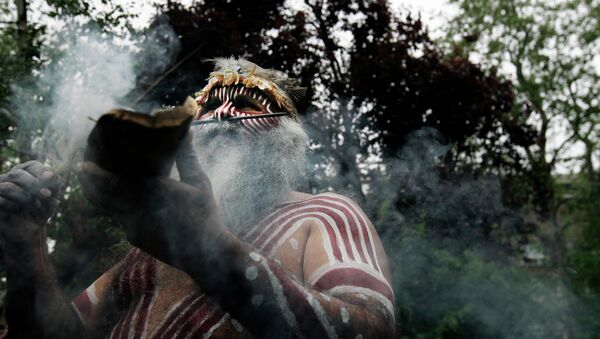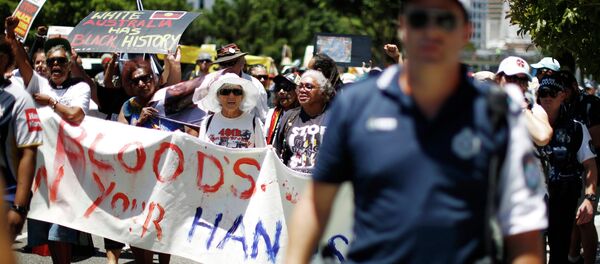Aboriginal and Torres Strait islanders that make up the indigenous population of Australia face problems such as poor access to social services, unemployment, higher mortality rates and a lack of education and political representation.
"I think there is an overwhelming feeling in Australia that average indigenous policy is in a very bad place [condition]. There is very little consultation with indigenous peoples on policies and laws that affect their lives," Megan Davis, member of the UN Permanent Forum on Indigenous Issues, told Sputnik during an inter-sessional meeting of the forum in Russia's Salekhard.
Davis, who is the first Australian indigenous woman elected to a UN body, explained that Aboriginal Australians desperately lack political representation, as the national Congress that they used to have was defunded by the government.
The lack of government attention and comprehensive policies on the issue result in the worsening state of some aspects of life for Aboriginal Australians.
Thus, according to the recent report on the progress on indigenous issues in Australia called "Closing the Gap", there has been improvement in just two indicators — childhood morality rates and basic education. However, low life expectancy and early childhood education have seen no such progress.
"Australia is not closing the gap. In fact, on some indicators we are going backwards," Davis said.
"The Australian government's approach is just that indigenous peoples should live the same life, as other Australians. And it is important in terms of citizenship rights and access to health, education etc., but has no regard for cultural choices," Davis noted.
In this respect, the UN representative praised Russia's experience and, in particular, the efforts of the authorities of the Yamal-Nenets autonomous district to preserve the traditions of the indigenous peoples of the North and to let them lead their traditional way of life despite massive oil and gas production in the region.
The UN Permanent Forum on Indigenous Issues is an advisory body of the organization's Economic and Social Council. It holds sessions once a year to discuss problems that indigenous peoples around the world face and to work out recommendations. The forum's inter-sessional meeting is currently being held in Salekhard in Russia's North, with the next session scheduled for April in New York.




